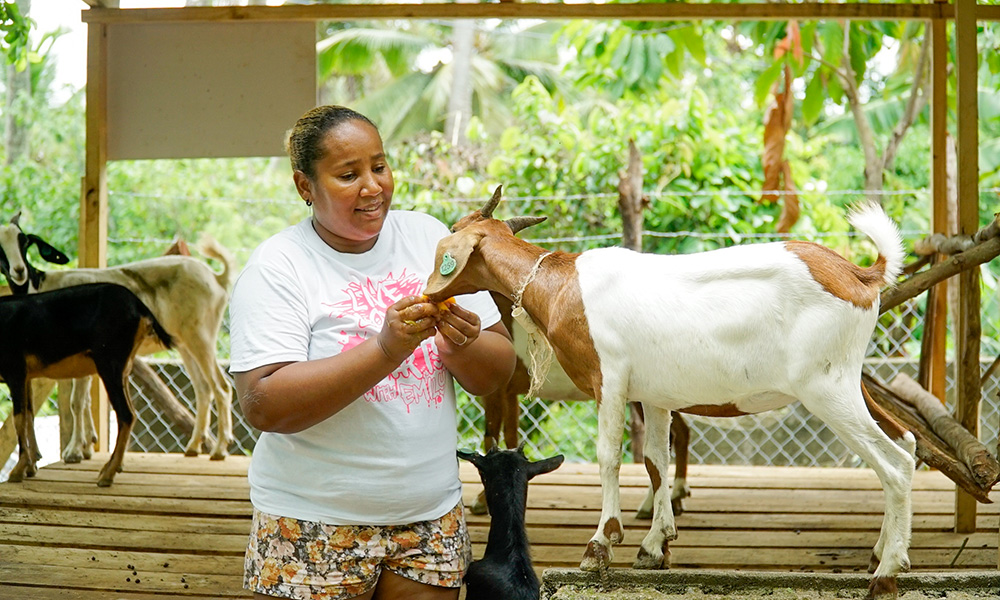In July 2021, the Dominican Republic faced a crisis in its pork sector due to an outbreak of African swine fever (ASF), which severely affected more than 50,000 jobs and infrastructure worth millions of dollars.
In response to this situation, the Food and Agriculture Organization of the United Nations (FAO), together with the Ministry of Agriculture and with funding from the United States Agency for International Development (USAID), implemented an innovative project to support affected small-scale pig producers.
The project focused on providing sheep and goats as alternative means of production to avoid the animal health risks associated with pig repopulation, while the virus persists in the country.
The implementation focused on strategic provinces where hundreds of vulnerable producers depended largely on raising backyard pigs for their income. Today, on more than 150 farms, its effectiveness has been demonstrated, with a 24% increase in animal mass and a survival rate of over 70%. Rodrigo Castañeda, FAO representative in the Dominican Republic, explained that the approach not only combated the spread of ASF, but also offered sustainable solutions to affected communities by promoting “long-term resilience.”
Meanwhile, Jesús de los Santos, coordinator of the Biosecurity project of the Ministry of Agriculture, stressed that international collaboration was key in this project. “We shared knowledge and developed effective strategies that have been fundamental to confront this disease,” he said.
The project, which promoted the generation of new economic activities, has transformed the lives of thousands of families in the most affected regions, provided income diversification, replaced pig production with goat production, provided environmental sustainability through the promotion of agricultural practices that improve soil health and community resilience, and the strengthening of local capacities to face future outbreaks.
According to FAO, the positive impact of the project is reflected in testimonies such as that of Josué Enmanuel Santos, a producer from Samaná, who has stated that he has gone through different processes in which he has learned a lot. “The best moment I had was when I sold my first goat born in my corral, which at six months had an average weight of 33 kilograms. This sale showed the importance of good management and care of them in collaboration and with the instructions that FAO professionals have provided us,” he said.
Deyaniris Salazar, a producer from Nagua, also shared her positive experience after the first sales of her goats, which improved the living conditions of her family.
ASF forced the slaughter of 45,200 pigs in the country
African swine fever has caused devastating losses in Dominican pig farming, with more than 45,200 pigs slaughtered. The Government has allocated millions of dollars to support affected producers, and is continuing with a broad program to control the disease. This project is part of the National Program for Pig Biosecurity, which is being developed by the Ministry of Agriculture with technical assistance from FAO.

















